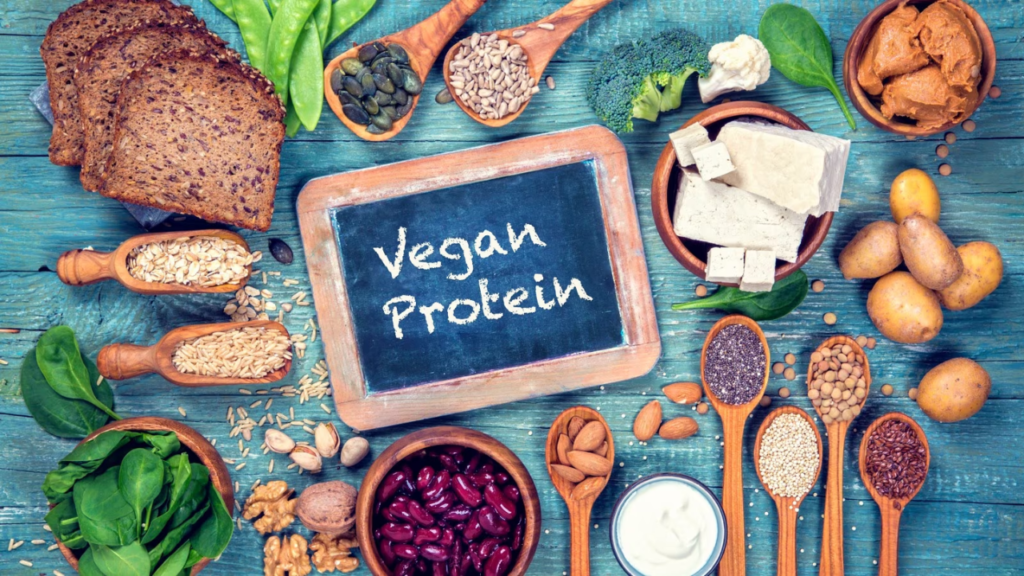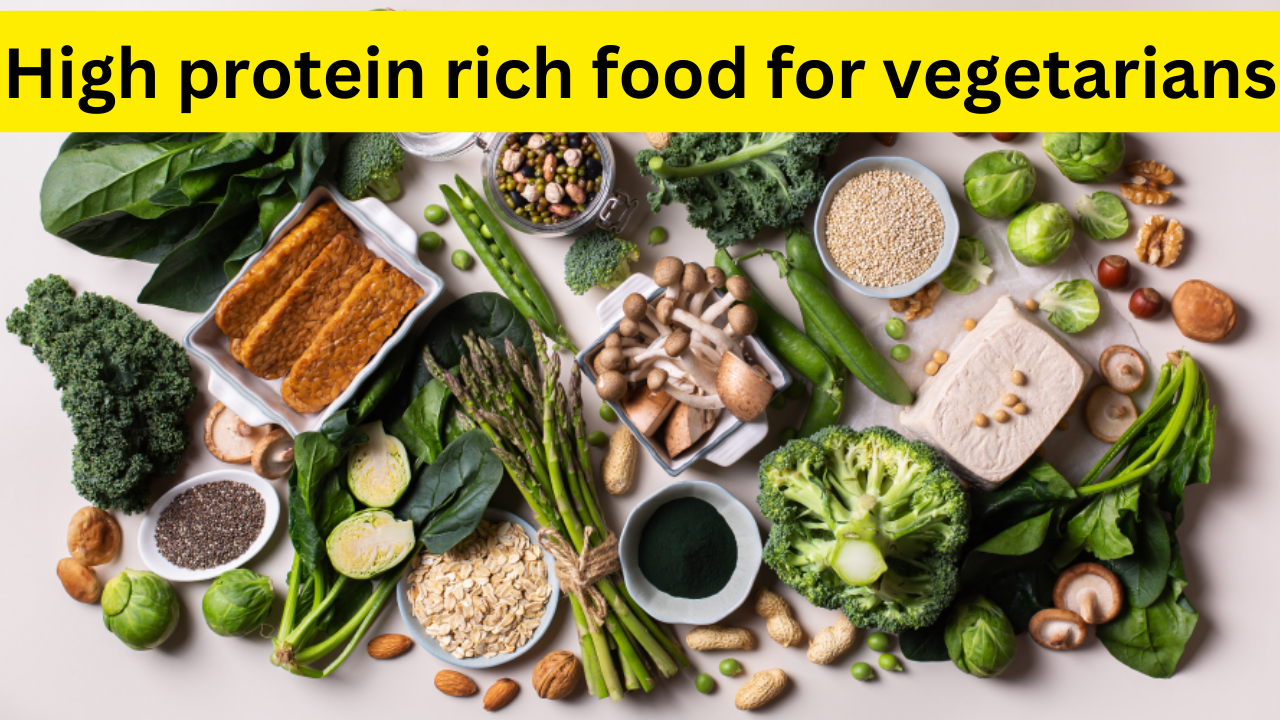In today’s fast-paced world, maintaining a balanced diet can be challenging, especially for vegetarians who need to ensure they get enough protein. Protein is essential for building and repairing tissues, producing enzymes and hormones, and overall bodily function. For vegetarians, finding high-protein foods can be a bit tricky, but with the right choices, it’s entirely possible to meet your protein needs. This article will explore some of the best high-protein foods for vegetarians to help boost your health.
Why is Protein Important?
Protein is a crucial macronutrient that plays a vital role in many bodily functions. It’s made up of amino acids, which are the building blocks of the body’s tissues and organs. Here are some reasons why protein is essential:
- Muscle Growth and Repair: Protein is necessary for muscle repair and growth, making it particularly important for those who engage in regular physical activity.
- Enzyme Production: Proteins help in the production of enzymes that are essential for various biochemical reactions in the body.
- Hormone Regulation: Protein plays a role in the production of hormones that regulate various bodily functions.
- Immune Function: Proteins are involved in the creation of antibodies, which help protect the body from infections.
- Energy Source: When carbohydrates are not available, protein can be used as an energy source.
High Protein Rich Foods for Vegetarians

1. Quinoa
Quinoa is a complete protein, meaning it contains all nine essential amino acids. It is also high in fiber, magnesium, B vitamins, iron, potassium, calcium, phosphorus, and many antioxidants. Quinoa is versatile and can be used in a variety of dishes, from salads to main courses.
Nutritional Information (per 1 cup cooked):
- Protein: 8 grams
- Fiber: 5 grams
- Calories: 222
2. Lentils
Lentils are a great source of protein and fiber. They are also rich in iron, which is essential for transporting oxygen in the blood. Lentils can be used in soups, stews, salads, and even burgers.
Nutritional Information (per 1 cup cooked):
- Protein: 18 grams
- Fiber: 15 grams
- Calories: 230
3. Chickpeas
Chickpeas, also known as garbanzo beans, are not only high in protein but also rich in fiber, vitamins, and minerals. They can be used in various dishes such as hummus, salads, and stews.
Nutritional Information (per 1 cup cooked):
- Protein: 15 grams
- Fiber: 12 grams
- Calories: 269
4. Tofu
Tofu, made from soybeans, is a complete protein and a staple in many vegetarian diets. It is incredibly versatile and can be used in both savory and sweet dishes.
Nutritional Information (per 3.5 ounces):
- Protein: 8 grams
- Fiber: 2 grams
- Calories: 76
5. Tempeh
Tempeh is a fermented soybean product that is high in protein and probiotics, which are beneficial for gut health. It has a firm texture and a nutty flavor, making it a great addition to stir-fries and sandwiches.
Nutritional Information (per 3.5 ounces):
- Protein: 19 grams
- Fiber: 7 grams
- Calories: 195
6. Edamame
Edamame are young soybeans that are usually steamed or boiled. They are a complete protein and a great source of vitamins and minerals.
Nutritional Information (per 1 cup cooked):
- Protein: 17 grams
- Fiber: 8 grams
- Calories: 189
7. Greek Yogurt
Greek yogurt is thicker and creamier than regular yogurt. It is also higher in protein, making it a great option for vegetarians. Choose plain, unsweetened Greek yogurt for the healthiest option.
Nutritional Information (per 6 ounces):
- Protein: 15 grams
- Fiber: 0 grams
- Calories: 100
8. Cottage Cheese
Cottage cheese is a high-protein, low-fat cheese that is also a good source of calcium. It can be eaten on its own, with fruit, or added to salads and dishes.
Nutritional Information (per 1/2 cup):
- Protein: 14 grams
- Fiber: 0 grams
- Calories: 90
9. Hemp Seeds
Hemp seeds are a complete protein and also provide healthy fats, fiber, and various vitamins and minerals. They have a mild, nutty flavor and can be added to smoothies, salads, and yogurt.
Nutritional Information (per 3 tablespoons):
- Protein: 10 grams
- Fiber: 1 gram
- Calories: 170
10. Chia Seeds
Chia seeds are an excellent source of protein, fiber, and omega-3 fatty acids. They can absorb liquid and form a gel-like consistency, making them a great addition to smoothies, puddings, and oatmeal.
Nutritional Information (per 2 tablespoons):
- Protein: 4 grams
- Fiber: 11 grams
- Calories: 137
Tips for Incorporating High Protein Foods into Your Diet
- Plan Your Meals: Make a weekly meal plan that includes high-protein vegetarian foods. This will ensure you are getting enough protein throughout the week.
- Diversify Your Sources: Include a variety of protein sources in your diet to ensure you get a broad spectrum of amino acids and nutrients.
- Use Protein-Rich Snacks: Opt for high-protein snacks like Greek yogurt, edamame, or a handful of nuts to keep your energy levels up throughout the day.
- Cook in Batches: Prepare large quantities of high-protein foods like lentils, chickpeas, and quinoa in advance, so you have them ready to add to meals during the week.
- Experiment with Recipes: Try new recipes that incorporate high-protein ingredients to keep your meals interesting and nutritious.
Read More : Embracing a Healthy Life with WellHealthOrganic: Your Ultimate Guide
Conclusion
Boosting your protein intake as a vegetarian is not only possible but also delicious and nutritious with the right foods. Incorporating these high-protein foods into your diet can help you meet your nutritional needs, support muscle growth, and maintain overall health. Whether you’re a seasoned vegetarian or just starting out, these protein-rich options will help you thrive on a vegetarian diet.
Remember, a balanced diet is key to good health, so be sure to combine these high-protein foods with a variety of other nutrient-dense foods for optimal wellness.
Read Also : Boost Your Health with WellHealthOrganic Vitamin B12
